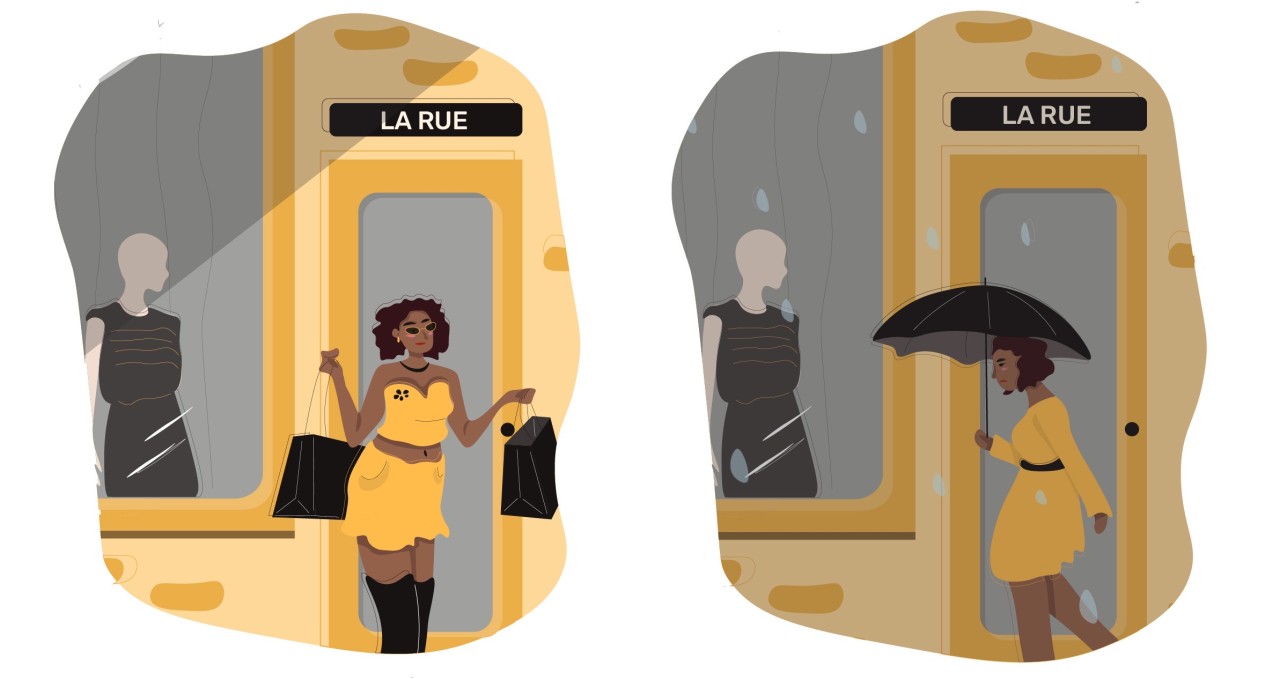
The weather can have an impact on the shopping habits of consumers in multiple ways. A consumer's choice of channels to make purchases is directly influenced by the weather. It can be observed, for instance, that traditional street-side businesses often enjoy higher foot traffic on sunny days while online retailers gain traffic during rainy weather. According to a study, when it's cold or rainy, traffic to clothing, home, furniture, and wholesale retailers increases by 12%, in comparison to warm and sunny days. In contrast, on warm and sunny days, brick-and-mortar stores do more sales. It is not uncommon for British weather to be cool all year round, and it can have an impact on our shopping habits. For instance, the 'Beast from the East' severely affected retail sales in 2018, contributing to a slowdown in the entire British economy. Winter months that extend into March and April can cause clothing sales to decline, as people aren't ready to buy new Spring/Summer articles. This results in sales being affected and retailers are left with excess stock that is hard to move, which means they have to reduce prices when trying to sell out of season items. The weather influences consumers' moods no matter the temperature, sunshine, or rainfall. Not only does it influence the channels consumers use to shop, but also the amount they spend when shopping.
An investigation conducted by the University of Toronto has shown that exposure to sunlight dramatically increases the desire to consume, as well as the amount spent per item. Researchers found that when consumers were exposed to sunlight they were willing to pay 37% more for green tea and 56% more for gym memberships. A prolonged period of wet weather can dampen enthusiasm among many shoppers, but not everyone is afflicted. Shopping centres are benefited from this weather because people avoid the exposed high streets and head inside instead. Despite a largely seasonal March, the spring of 2012 recorded the wettest April on record. Sales across the UK declined by double figures during this period, with high street stores suffering the most. During that period, the only retail category that actually saw footfall increase was shopping centres. Shoppers are deterred from purchasing things they desire or overbuying in poor weather because they have to carry their purchases in that weather. When it rains, for example, the items may be damaged and it may be more difficult to carry them. Strong winds can make it a struggle for consumers to carry their goods after making purchases, deterring them from making the decision to purchase. This is when in-store delivery services can help overcome the issues, however, this is not always an option in every store. As a result, many consumers have had to delay their purchases or simply switch to other channels, such as online shopping, as they have no other choice. Most people are abandoning both the high street and shopping centres and turning to the Internet instead. In these times when food and clothes shopping has become more widespread online, people prefer to shop on the websites of their favourite high street stores during cold weather instead of going in person. This allows consumers to make use of the convenience and avoid having to deal with the issues associated with shopping in the cold.
On the other hand, consumers tend to shop online less when the weather is nice and spend more time outdoors. Shoppers who shop online miss out on many of the advantages of in-store shopping, and often have to wait a few days for their purchase to arrive. According to research, the impact of weather on online sales varies by location and is influenced by the weather patterns normally experienced within these regions as well as the attitudes and cultures of consumers. The Japanese e-commerce company Rakuten conducted a study on the effect weather has on online sales during rainy days in France. The company noticed a large increase in sales and revenue during rainy days from Lyon and Marseille-based traffic, with a much more modest lift for Paris. Lyon and Marseille, where the climate is better, are less tolerant of rain, which may be why they stay indoors on rainy days and shop online instead. Paris, on the other hand, tends to have more inclement weather, possibly explaining why sales were not affected much, as Parisian customers are more accustomed to shopping in-store despite the level of precipitation.
Get Started with WeCarryBags
Hassle-free experience delivers your Shopping bags from Store to Door.
Contact
Carrybags Limited
111 New Union Street,
CV1 2NT, Coventry,
United Kingdom
Resources
Copyright © 2025, All rights reserved.

